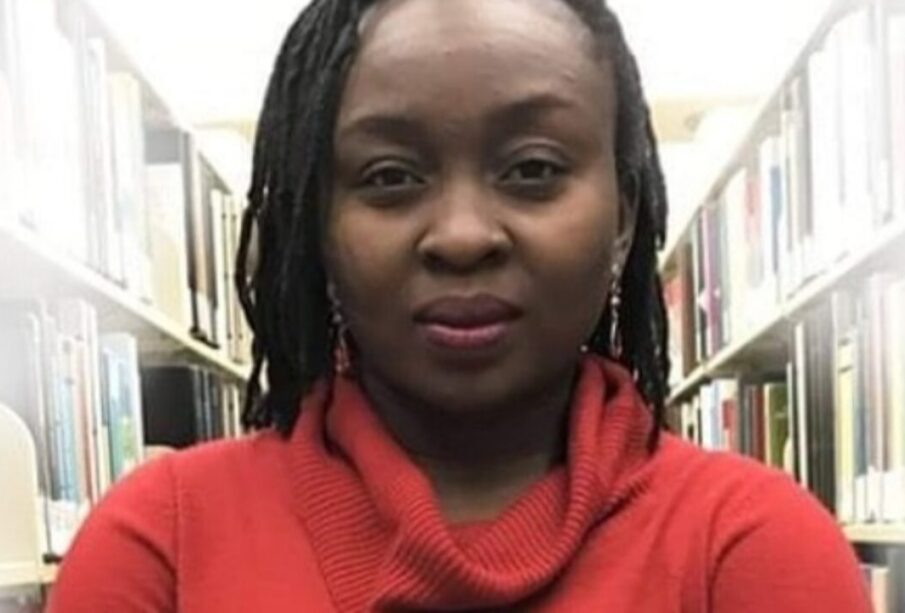[OPINION] Nigeria, Africa and LGBT panic

Abimbola Adelakun
By Abimbola Adelakun
When information minister Mohammed Idris addressed the public on the Daily Trust’s recent controversial report, he took the worn path of adding moral panic to the existing one. Rather than address the matter at stake straightaway, he first went on self-justificatory explanations before whipping out the All Progressives Congress’s favourite allegations of ethnic bias and how everything else—except their poorly run government—can lead to potential social breakdown. While Daily Trust did not give a good account of themselves on that issue, we must keep in mind that they are a private media house that caters to an audience in a free market. They do not owe it to the current administration to be fair, just as the Bola Tinubu-owned media houses too were never nice to the past Peoples Democratic Party government.
For those whose memory of that controversy has receded, this is about the recent sensational report about the so-called Samoa Agreement the Federal Government signed. According to Daily Trust, the agreement contains clauses that compel underdeveloped and developing nations like Nigeria to support the advocacy by the Lesbian, Gay, Bisexual, and Transgender community for legal recognition as a condition for getting financial and other support from western countries. Daily Trust’s report did not quite say how much we would be getting, but they hinted that some $150bn was involved. Merely implying a link between LGBT and money was enough for that story to be multiplied in the imagination of poor Nigerians. It got to a point that some people expressed their belief that Nigeria was getting $150bn for signing a LGBT agreement.
When you consider our society’s tendency to believe virtually anything, then you will understand why a Warri prophet is selling “miracle soap” and other magical items to his beguiled congregation. When a society’s moral ecosystem is already rigged with lies, there is no amount of absurdity people will not tolerate. Human gullibility is such a perpetually inelastic market that no matter how outrageous it gets, there are always people willing to buy falsehood.
The Federal Government vs Daily Trust debacle, at least while the sensation lasted, was perhaps the most amusing drama I have seen in our public space this year. Yes, it was most laughable to find out that there are actually Nigerians out there who believe that they—and their leaders—have moral values that can withstand a $150bn inducement. For the newspaper to have even drawn the associative line between the money and the agreement, they must know the peculiar disease of numerical a-literacy that afflicts their countrypeople and choose to exploit it.
Ours is a country where we mention “millions” and “billions” without corresponding association of value. There was a time in this country when corruption was measured in millions. In the 1990s, the $12bn Gulf oil windfall seemed like the peak of financial corruption. Today, no self-respecting administrator goes that low. Even corruption to the tune of billions of dollars no longer scandalises.
The desensitisation also impacts how we understand and relate to figures. Ask a Nigerian what the population of their country twice in a day, and you might hear them say “200 million” in the morning and “250 million” in the evening. They will easily add zeroes to arrive at whatever they feel it should be without being struck by the absurdity. It is the same way we report casualty figures and hype the numbers. One death is not enough disaster in our part of the world; we must exaggerate just so the incident can register.
To the numerical a-literate, figures are just a bunch of zeroes written one after the other. Since they cannot conceptualise the inherent value, those numbers mean nothing. Because the figures have been de-anchored from reality, we can easily lie with figures.
Here is a quick example: In December 2022, the Independent National Electoral Commission announced it would spend N117bn (about one third of its budget) on technologies that prevent hacking and other electoral issues. When the election took place three months later, Minister of Communications and Digital Economy Isa Pantami claimed they managed to prevent 12.9m cyberattacks on the INEC server. That was an election in which 26 million people (likely inflated too) were recorded to have voted. How does it make sense that for every two votes cast, there was a cyberattack? That figure had to have been a statistical contraption by people who not only needed to justify their inflated budget, but also lay a firm ground for another future electoral corruption. Come 2027 election, you will see how much they will budget for anti-hacking technologies.
Whether willful mischief or just illiteracy on the part of the media, Daily Trust took advantage of our mathematically-challenged climate. The first proof that the story was bunkum was the amount they insinuated was involved. How much is the budget of Nigeria—or even the entire West Africa—that anyone would give us that much to decriminalise sexuality? According to the BBC, the said money (€150bn, not dollars) was not even dedicated to Nigeria but provided to Africa through a scheme known as Global Gateway to boost “smart, clean and secure links in the digital, transport, energy and climate-relevant sectors.”
But if truly we were being given the money for LGBT reasons, who says we would have resisted it? We have sold our souls for far less sums and not even for noble reasons. Nigerian—nay, African—leaders have acceded to far more terrible deals that will enslave people across generations for mere millions.
There must be a huge cognitive dissonance between reality and Nigerians’ processing of it for anyone to assume they can put up any resistance if truly western countries want us to change LGBT laws in exchange for money. Think of the World Bank loan of $2.25bn recently approved for Nigeria. Despite how much of our blood repaying that loan will draw, finance minister Wale Edun still described it as “the closest you can get to free money.” You think if the situation ever arises for that one to exchange Nigeria’s LGBT laws for actual free-no-strings-whatsoever-attached money, he will resist? And if that day comes, what can any of those raving and ranting against “LGBT and western agenda” do? Nothing.
Here is a counter-intuitive truth about western power and LGBT in Africa: they simply do not care enough to compel it. If that day ever comes that western powers decide that they need African leaders to decriminalise homosexuality, it will happen. A country like Uganda made one of the world’s most repressive LGBT laws to loudly signal its virtues of defying western nations. Yet, the same country lives off western charity. If their sponsors truly want them to reverse their anti-LGBT laws, do they not have the leverage? Think about it, if a Nigerian president sends a bill to decriminalise sexuality to the National Assembly, is it the Senate led by a morally lapsed fellow like Godswill Akpabio that will stand against it in the name of fighting for African values?
The best you will get from him and his fellow ideologically uninclined lawmakers in their hollowed chambers will be a tepid debate rapidly mouthed by people whose only conviction is money. They will pass the bill, and with even far more efficiency than they did with the national anthem. It will become a law, and there will be nothing any one of us can do about it. Even the religious leaders currently whipping up moral panic over nothing will sing a new song.
In Africa today, there is a lot of decay, disease, and decay because our leaders betrayed us for a mess of pottage. To think those who could do that will somehow develop the will to resist any more money—especially in billions—is just hilarious.
Culled from The Punch











